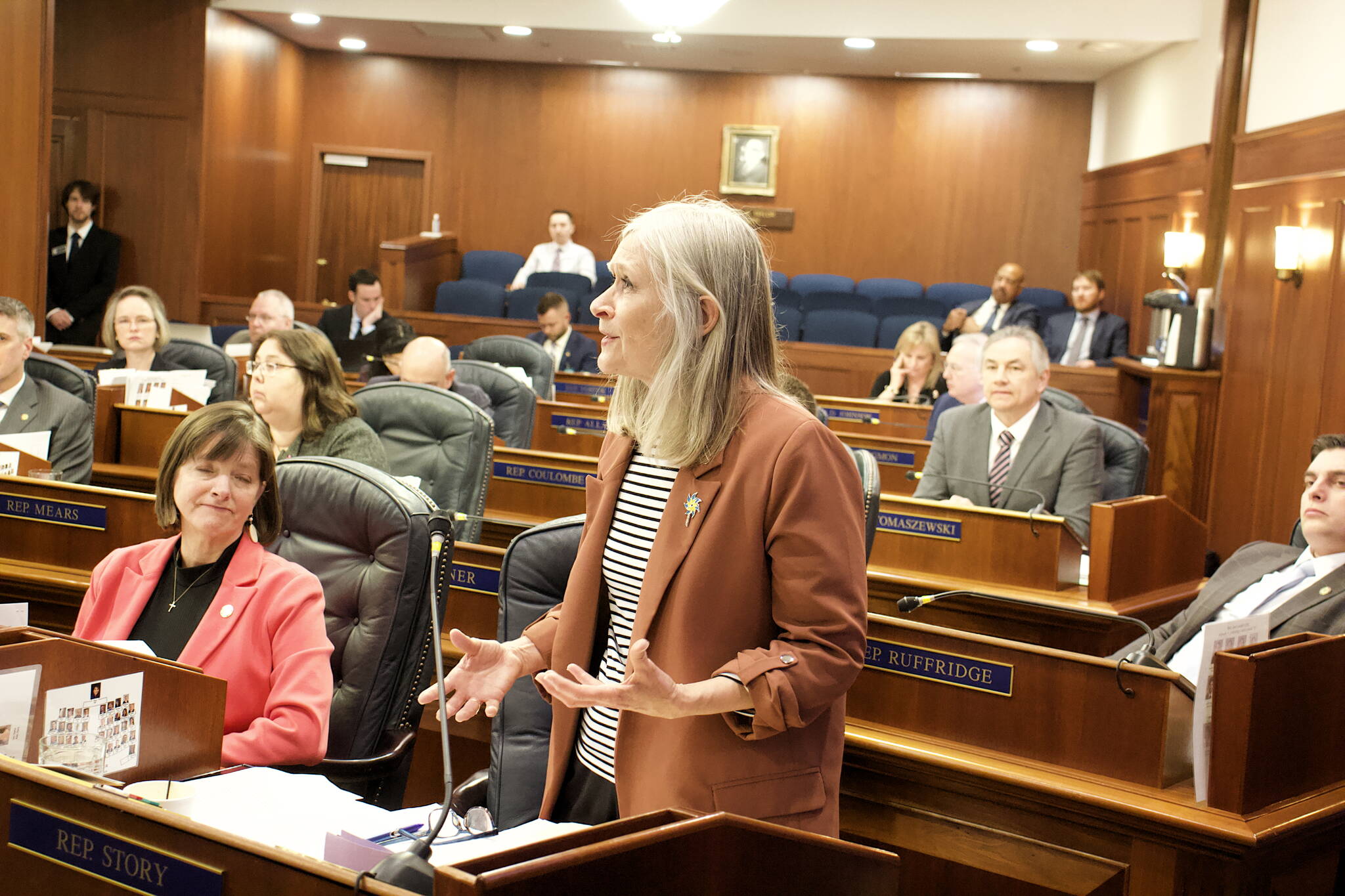On day 91 of the legislative session — one day past the 90-day limit in state law — the House finally passed a budget on Monday and the Senate moved closer to paying for it with a proposal shrinking Permanent Fund Dividends. Both, however, have little chance of becoming law in their current forms, according to key members of both chambers.
Ignoring the 90-day limit and spending a final month resolving differences before the 121-day constitutional limit to a session is nothing new — it’s which pieces need fitting into the puzzle that change somewhat. This year the biggest pieces so far are an education funding increase and the size of PFDs, along with what concessions or tough choices will be needed to avoid a deficit — unless a sudden recent upward spike in oil prices bails lawmakers out as has happened in some past years.
The Republican-led House, after a delay of more than a week from their original timeline, approved a roughly $6.5 billion budget with an estimated $600 million deficit by a 23-17 vote, with only the majority caucus members voting in favor. The key elements of the bill that largely maintains status quo spending on state programs are a $175 million one-time increase to education funding and a so-called “50-50” plan that would result in a PFD of about $2,700.
“This bill is not perfect, madam speaker, but it is a good-faith collaborative effort,” said Rep. DeLena Johnson, a Palmer Republican who co-chairs the House Finance Committee, during Monday’s floor debate.
’The Senate, scheduled to wrap up work on its draft budget by Wednesday, is expected to seek a larger and ongoing increase to education funding, a boost to some state employee pensions, and a “25-75” plan that would result in a PFD of about $1,300 unless at least $900 million in new revenue is included. The Senate’s budget currently does not have a deficit.
But House majority leaders have expressed strong opposition to the “25-75” plan for Gov. Mike Dunleavy, whose budget contains a “statutory” dividend projected to be somewhat above $3,000, would be compromising simply by agreeing to the House’s “50-50 plan.”
Public hearings by the Senate Finance Committee on the spending plan are tentatively scheduled Thursday and Friday, with amendments scheduled the following week and a floor in early May. After that a conference committee of House and Senate members will draft a compromise budget both chambers will need to pass by the 121-day deadline on May 17.
As is often the case, one of the key issues to resolve during the final month is what concessions will be needed to get a three-fourths vote of both the House and Senate in order to tap the roughly $2 billion Constitutional Budget Reserve to cover any deficit in spending. That’s not likely to be an issue in the 20-member Senate with its 17-member bipartisan majority, but the minority refused to support accessing the CBR during Monday’s floor session citing a variety of reasons.
“We did not get through $15 million more in child care, which is a very modest investment that we can make,” said Andi Story, a Juneau Democrat. “In the matter of education, one-time funding, we have to get off doing that sort of planning for our schools and our children’s education.”
Something virtually all lawmakers in the building are at least saying is essential is a long-term fiscal plan, which many House minority members have said they want to see in place in exchange for their CBR votes. But there’s a multitude of proposals seeking to generate revenue such as a 2% sales tax, an income tax and adjusting oil taxes — and not a lot of time to pass what has historically been unpopular legislation.
House majority leaders, during a press conference after the floor vote, said a difference this year is most people inside the Capitol seem willing to consider proposals that previously were politically unpalatable. But whether they’ll need to is also an open question, as a decision by OPEC a few weeks ago to cut production to deliberately hike oil prices has resulted in an increase of about $15 a barrel during the past couple of weeks — which over the course of a year could put more than $1 billion in the state’s coffers and essentially eliminate any fiscal shortages for the coming fiscal year.
But Johnson, while saying she wants to hear an updated forecast from state revenue officials, said she isn’t for now eager to base a budget on the recent increase.
“I think it’s dangerous when legislators begin their own revenue forecasts,” she said.
• Contact Mark Sabbatini at mark.sabbatini@juneauempire.com

